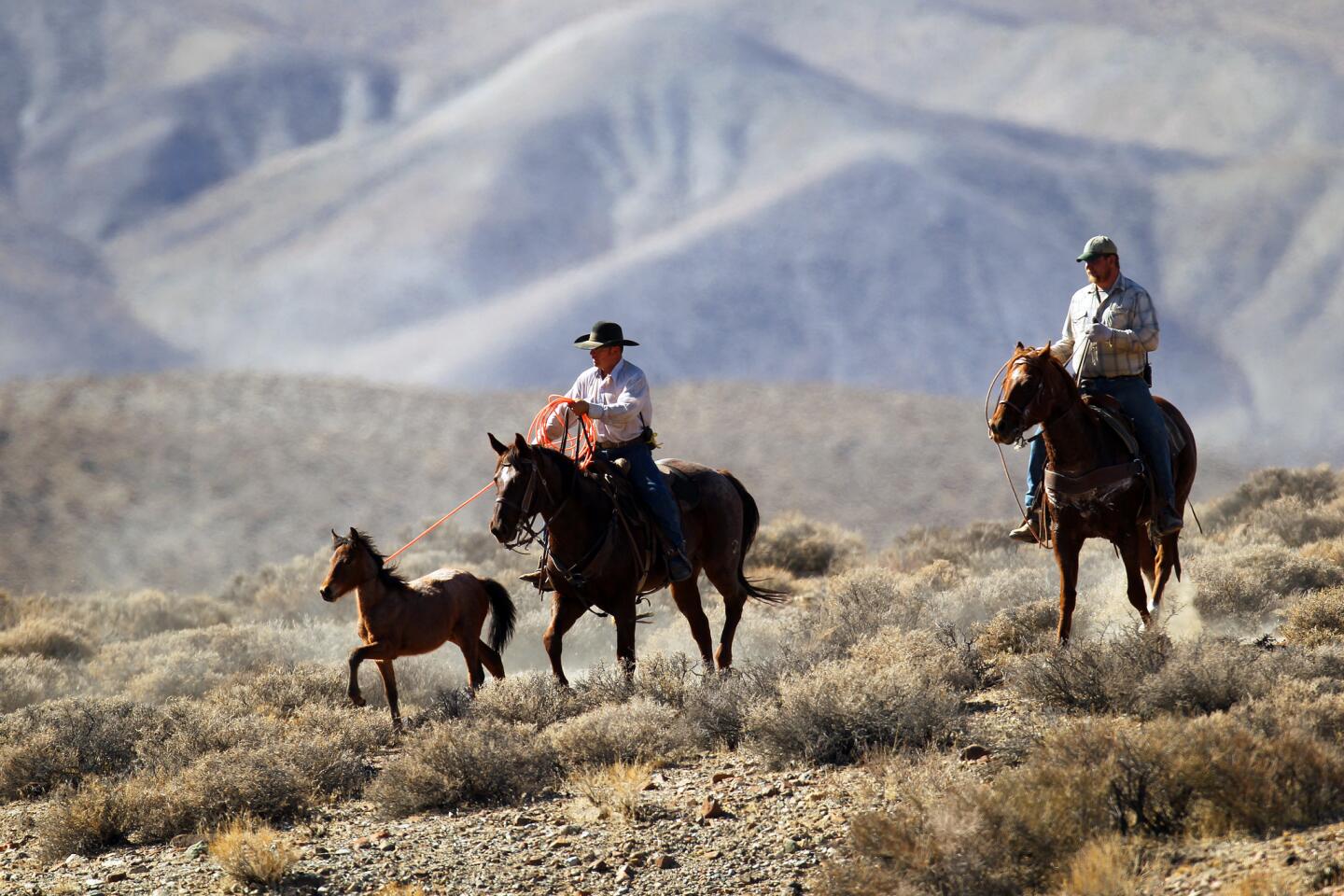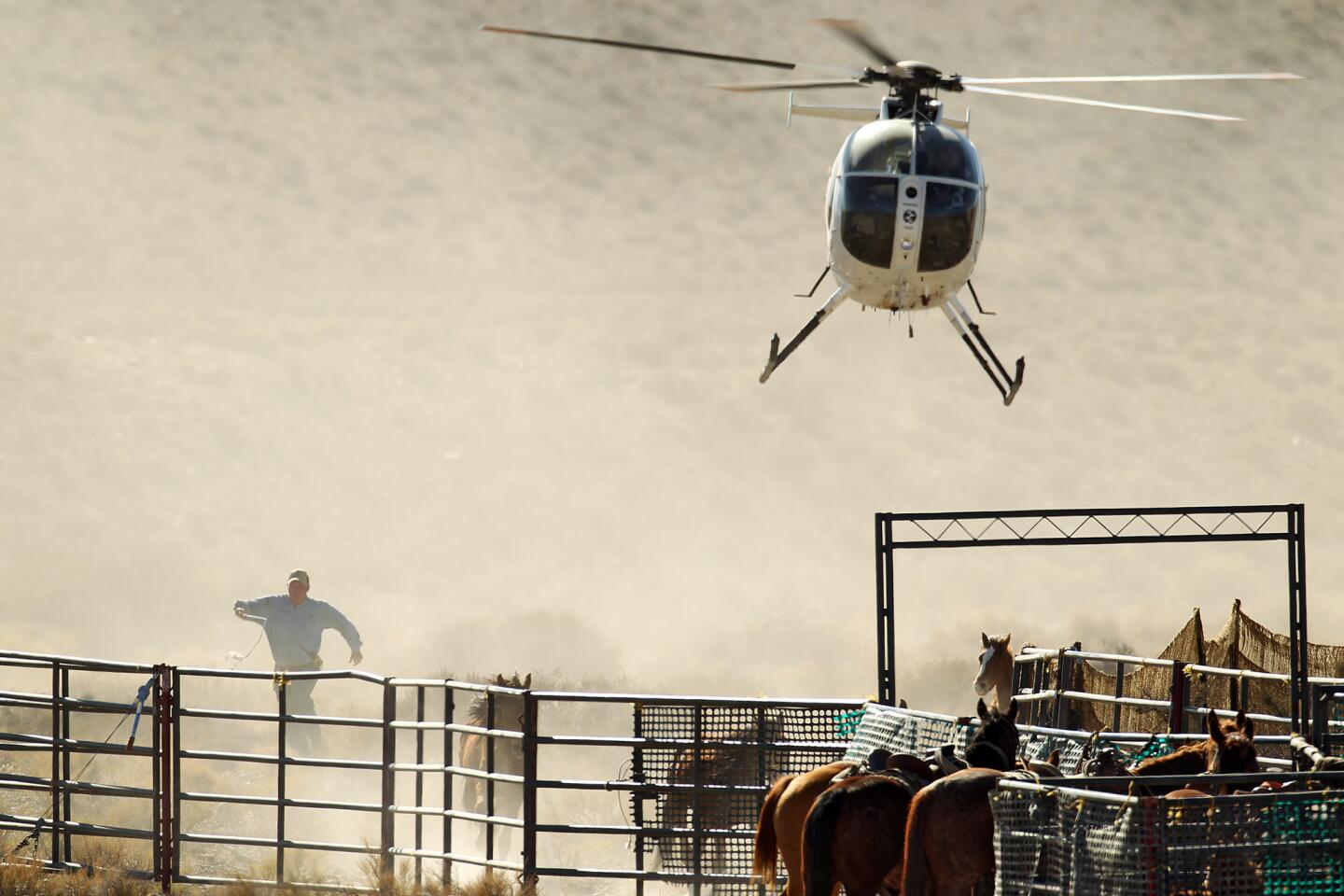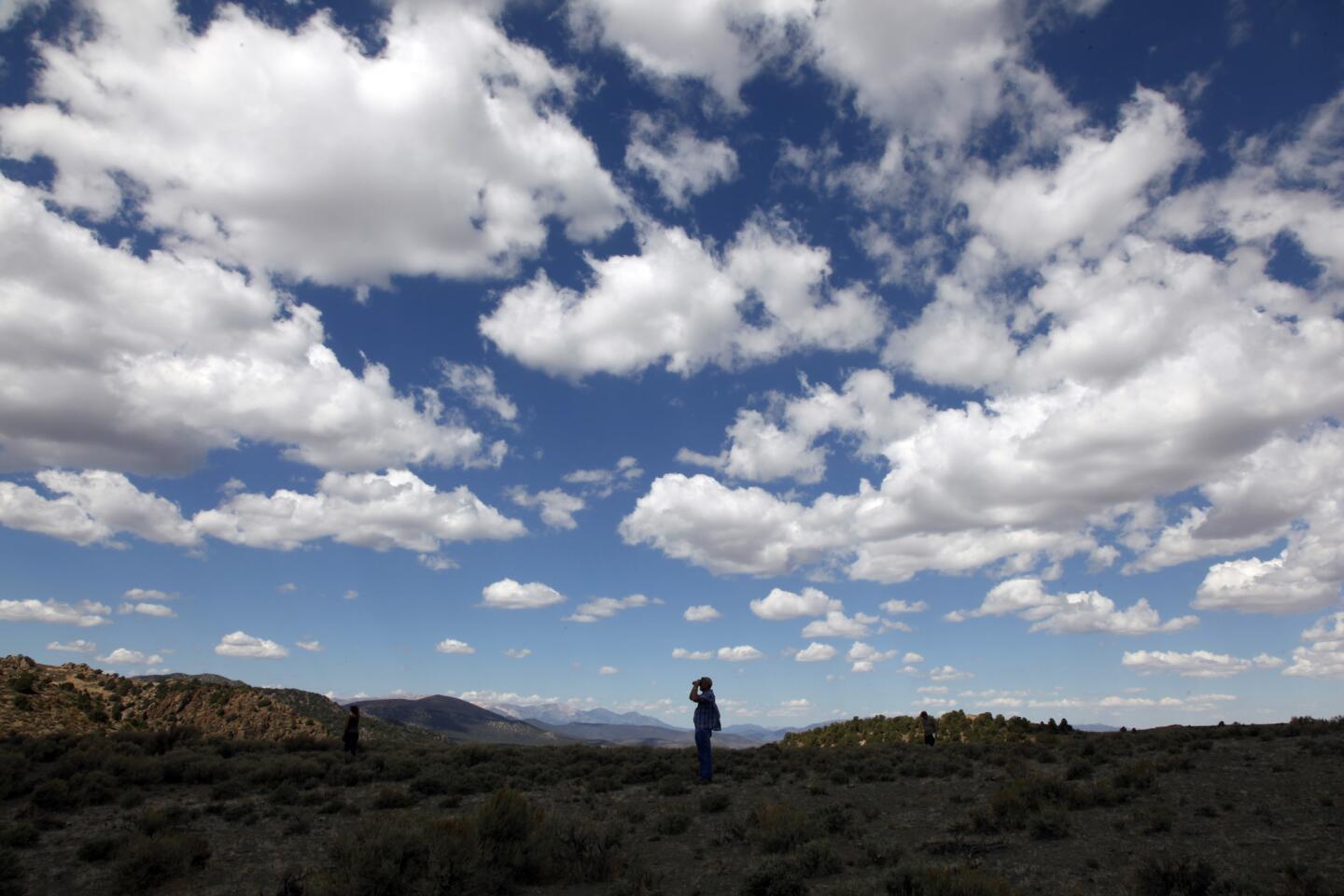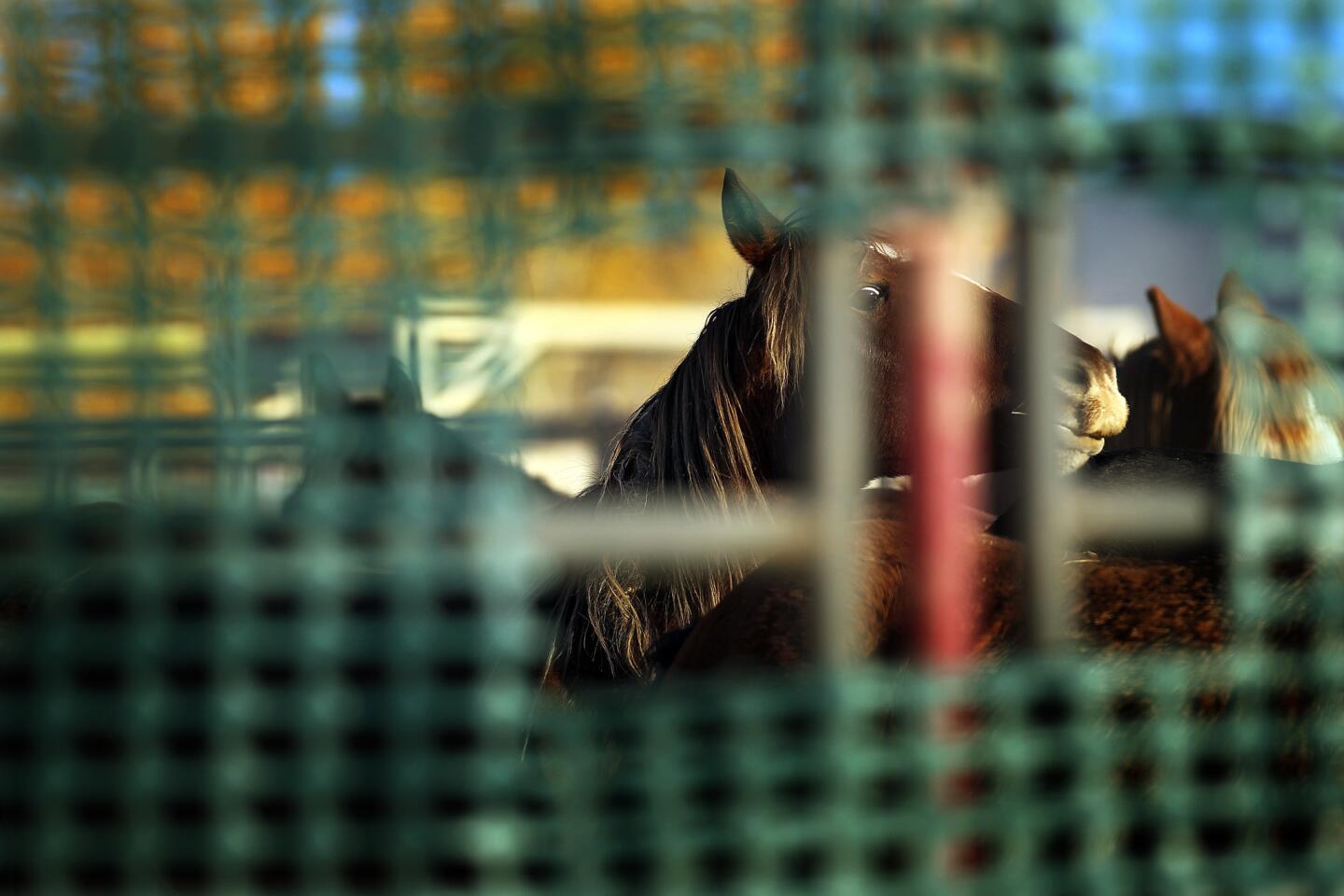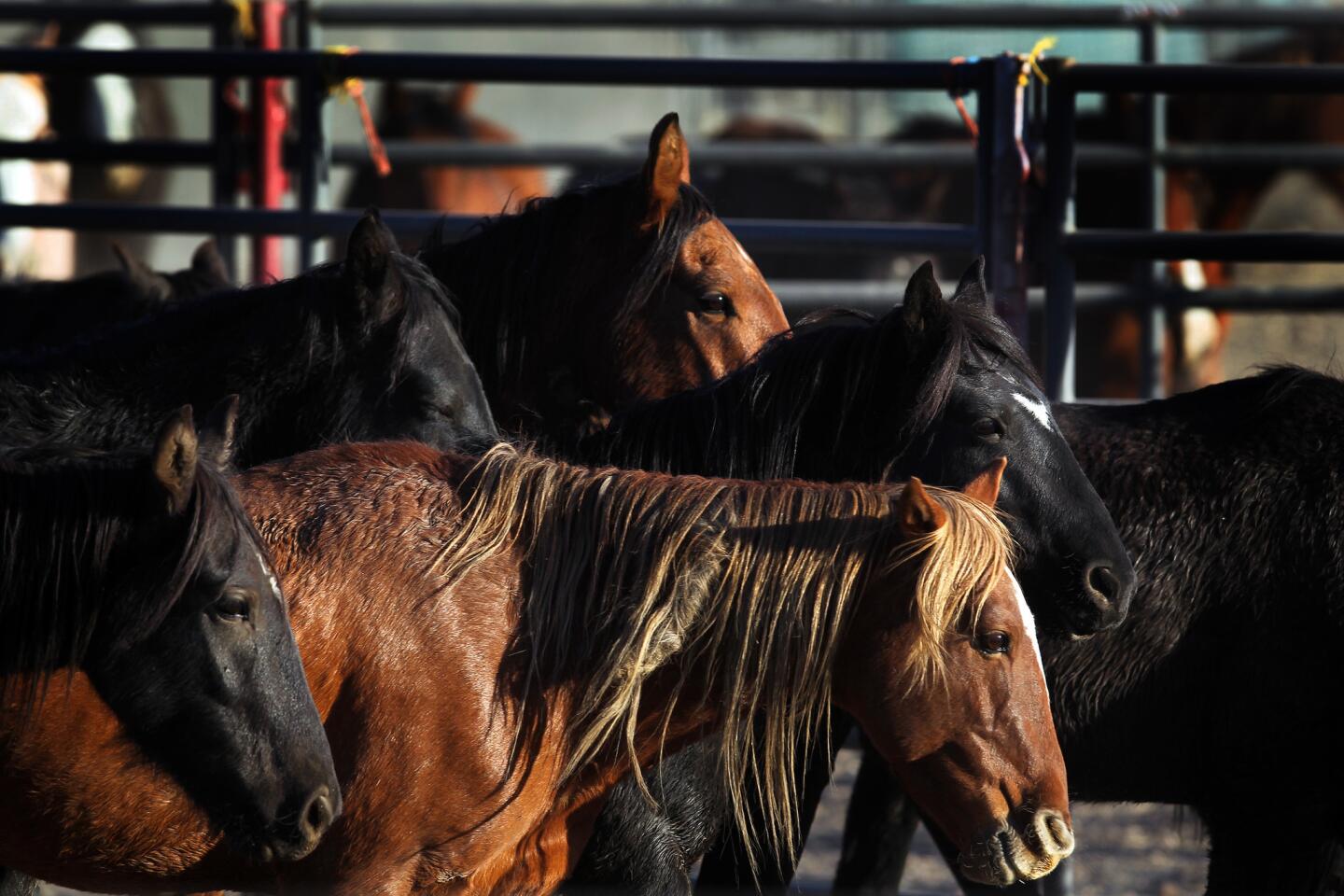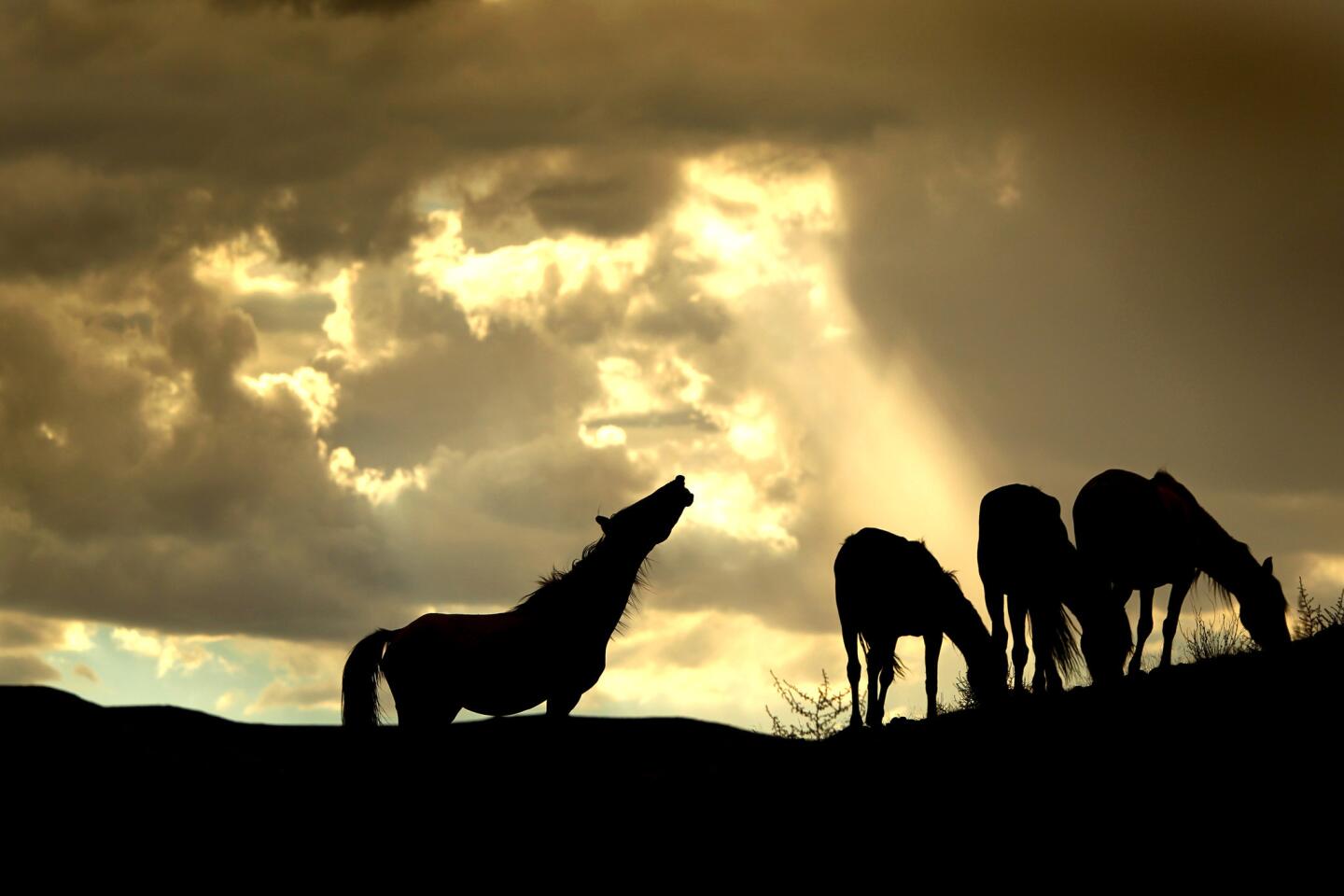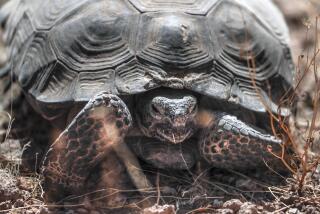1,800 protected wild horses sent to their deaths in Mexican slaughterhouses
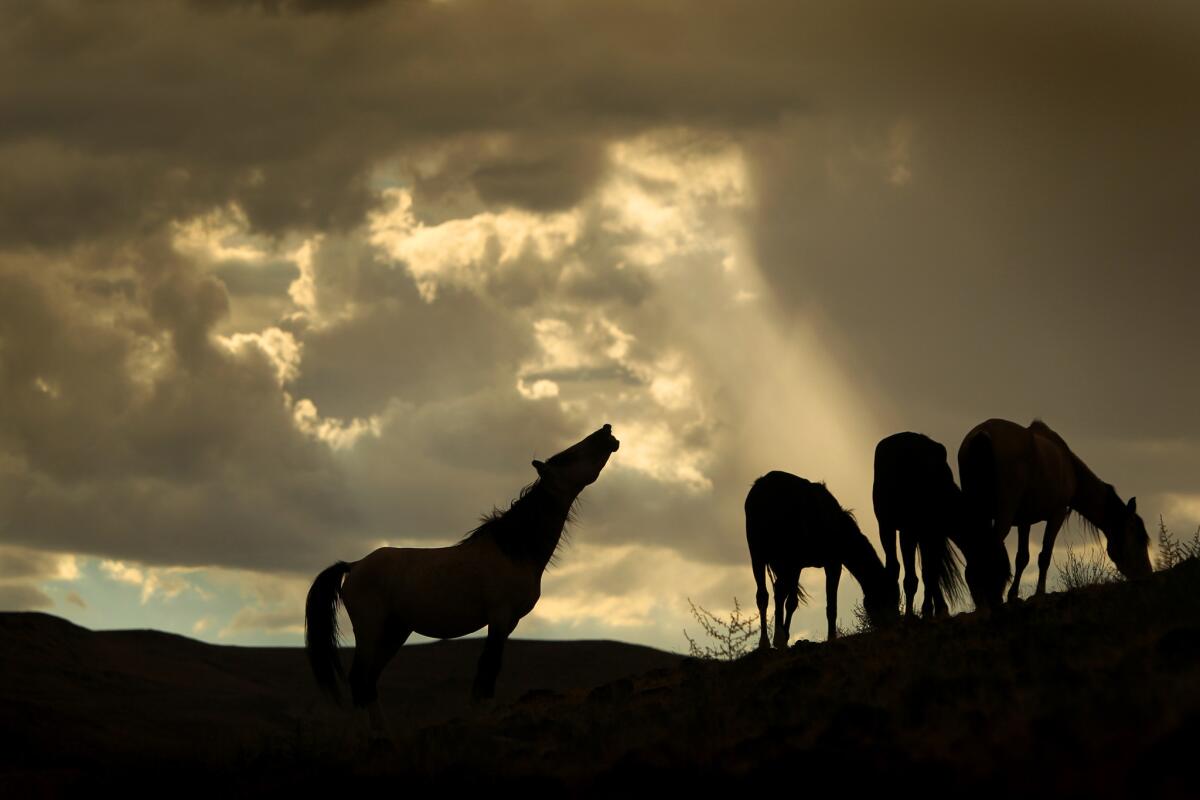
Wild Mustangs roam the hills in rural Nevada. The Bureau of Land Management conducts regular wild horse roundups, removing them from the range to control the population and diminish damage to grazing lands, the agency says. Critics say the BLM favors for-profit cattle ranchers that graze their livestock on the public land shared with the mustangs and burros.
Reporting from Las Vegas — Wild-horse activists are furious now that a government report has confirmed their suspicions: The Bureau of Land Management sold 1,794 federally protected wild horses to a Colorado rancher who sent them to slaughter.
The report by the U.S. Interior Department Office of Inspector General, horse advocates say, shows “a picture of government incompetence and a willful evasion of the law.”
Now they’re collecting petition signatures to pressure Western legislatures to overhaul the government program that removes wild horses from the range.
NEWSLETTER: Get the day’s top headlines from Times Editor Davan Maharaj >>
“The only thing standing between mustangs and certain doom is the American public, which opposes horse slaughter,” said Suzanne Roy, director of the American Wild Horse Preservation Campaign. “We are putting a lot of effort to building a grass-roots army of activism.”
The BLM periodically rounds up wild horses and burros, supposedly to adopt them out to good homes and to prevent the range from overgrazing.
But for three years, ending in 2012, Colorado rancher Tom Davis purchased the animals through the BLM adoption program and sent them to Mexican slaughterhouses. Davis is a friend and neighbor of former Secretary of the Interior Ken Salazar.
“We determined that the BLM did not follow current law while managing [the horse adoption program]” and “failed to follow its own policy of limiting horse sales and ensuring that the horses went to good homes and were not slaughtered,” the report concluded.
Davis told investigators that most of the horses he purchased from the BLM went to slaughter, adding that “in selling so many loads of horses, BLM had to know that the horses would end up at the slaughterhouse.”
The report harshly criticized the agency’s adoption program, saying officials never attempted to verify the information Davis provided about his intention for such a large number of horses. Investigators also found that the BLM continued providing horses to Davis even after receiving reports that he was sending them to their deaths abroad.
U.S. law forbids the slaughter of horses on American soil. But that does not preclude businessmen like Davis from trucking them to slaughterhouses south of the border. Their meat is shipped to Europe and Asia, where there is an appetite for horsemeat.
NEWSLETTER: Get the day’s top headlines from Times Editor Davan Maharaj >>
Each year the BLM rounds up thousands of mustangs -- pintos and bays, roans and grays -- and trucks them off to be readied for adoption or sent to fenced-in Midwestern tracts, where ranchers are paid by the government to house the horses for the rest of their lives.
The BLM estimates that 49,000 wild horses are held in such facilities. In 2012, holding costs of $42 million devoured more than half of the BLM’s $72-million budget for its horse and burro program.
About 31,500 wild horses remain on the range.
Critics say the bureau bends to the interests of ranchers, who for generations have grazed their livestock on public lands leased for below-market cost.
Michael Tupper, the BLM’s deputy assistant director of resource and planning, recently took over supervision of the beleaguered horse adoption program. He says steps have been taken to see that such sale-for-slaughter deals never happen again.
“We take the report’s findings really seriously; we’re not messing around,” he said. “And we have implemented new policies to make these horses go to good homes.”
In light of the Davis affair, he said, the agency will sell only four horses in six months to any buyer – the number officials say can be adequately trained.
“The rules are designed to discourage nefarious intent,” Tupper added. “If anybody wants more than four horses in six months, they have to come to talk to me, and I’m a pretty straight-shooting guy.”
The BLM has more than 50,000 wild horses warehoused on farms throughout the Midwest and elsewhere. Animal advocates criticize the program, saying the BLM has overlooked methods such as birth control to thin herds on the range.
Roy said any apology isn’t enough to make up for the loss of so many animals. The agency has presented the agency with a petition demanding that it call off planned horse roundups in Oregon and Wyoming. The petition included 20,000 signatures.
“Almost 1,800 wild horses were sent to their deaths in a Mexican slaughterhouse and not one person is being held accountable,” she said. “The people involved all still work for the BLM.”
Hoy: Léa esta historia en español
ALSO
Why is China ending its one-child policy? Key questions and answers
UC Irvine is leading an effort to turn O.C. into the next Silicon Beach
How other teachers might have handled the texting South Carolina teen
More to Read
Sign up for Essential California
The most important California stories and recommendations in your inbox every morning.
You may occasionally receive promotional content from the Los Angeles Times.


